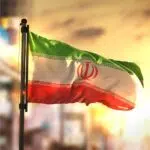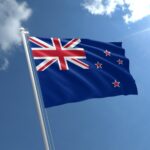The 1940 Centennial is commemorated on May 4 annually in New Zealand. It marks the first 100 years of intentional European settlement. A moment of pride for many New Zealanders both then and now, it was earnestly celebrated and is still marked in New Zealand calendars as the day that New Zealand became a nation. It may still be considered a young nation compared to many others but it is a land full of promise. Today, we can think that New Zealand, in many ways, has fulfilled its promise and realized much of its potential in this modern age.
History of The 1940 Centennial
Polynesian tribes first settled in New Zealand when they explored the Pacific Ocean between 1200 — 1300 A.D. European settlers arrived centuries later ― the Dutch were first in 1642. Abel Tasman discovered the island and named it ‘Nieuw Zeeland.’ Over a century passed before any new European developments took place. However, with Captain James Cook’s arrival, the islands of New Zealand became the British Empire’s, and the native Mauri population fell under imperial rule.There was almost a century of relative lawlessness around and on the islands. Thus, in the 1830s, the British authorities installed a governor and a British legal system to manage the island. At that point, Māori natives were not officially accounted for and were generally at odds with the arrival and settlement of Europeans, resulting in skirmishes and raids throughout the years. In 1840, governor William Hobson, New Zealand’s first governor, traveled the island visiting Māori chiefs and tribes until they could all assemble at Waitangi to officially sign what would later be known as the Treaty of Waitangi.The treaty officially recognized the legitimacy of the Māori people and their right to live on the land that was rightfully theirs. Much of New Zealand’s constitution hinges on the Treaty of Waitangi. The treaty gave the British government a solid foundation to grow New Zealand and establish it as an international colony. After independence, New Zealand later became a role player in foreign affairs.
The 1940 Centennial timeline
In his first of three voyages to the island, Captain James Cook visits New Zealand and initiates the eventual settlement and development of New Zealand.
After the incorporation of Māori tribes into the framework of the New Zealand colonial system, settlers exploit and pressure them to give up and sell their land, leading to conflict and 20 years of war.
New Zealand is the first country in the world that allows women the right to vote in democratic elections.
Refusing to join the Australian Federation in the late 1890s, New Zealand accepts independence from the British Colonial System.
The 1940 Centennial FAQs
New Zealand is not 100 years old anymore, why celebrate?
The day marks the time in New Zealand’s history when it became 100 years old. Few nations can trace their roots as easily and recently as New Zealand.
Do Māori tribes still exist?
Yes, there are still very traditional Māori tribes in New Zealand. However, many Māoris have assimilated and joined the New Zealand society.
Where is New Zealand?
New Zealand is one of the most southern nations on the planet, located South East of Australia.
How to Observe The 1940 Centennial
-
Celebrate the Kiwis
New Zealand has made many noble contributions to our present society. Thus, have a barbecue in their honor.
-
Watch Rugby
They are one of the best rugby nations on the planet, which is impressive considering their small population. Watch the New Zealand Rugby team in action.
-
Eat Hangi
Hangi is the national dish of New Zealand. If you’re looking to celebrate and have a fantastic meal, find yourself a recipe and prepare this traditional Māori dish. You’ll need a spade.
5 Facts About New Zealand
-
It is home to the Kiwi
It is both the national bird of New Zealand and the national fruit.
-
Part of the land is protected
About 30% of the island is considered a national reserve ― that’s why New Zealand can maintain its beautiful landscape.
-
The town with a really long name
Taumatawhakatangihangakoauauotamateaturipukakapikimaungahoronukupokaiwhenuakitanatahu is the town with the longest name in the world; it is on the East Coast of the island.
-
They love sheep
There are roughly 10 sheep for every person residing in New Zealand. This is because sheep farming is one of the main economic sectors on the island.
-
It’s the youngest society of human civilization
First settled in around 1200 and 1300 A.D., New Zealand was the last country or domain to have human inhabitants settling.
Why The 1940 Centennial is Important
-
It celebrates hope
In 1940, New Zealanders celebrated all they had achieved in 100 years. More importantly, they celebrated future achievements yet to be realized, being a young nation hungry to prove itself.
-
It's an important global precedent
Until the Treaty of Waitangi, and even under colonial or foreign rule, the indigenous population had their rights discounted. Although the treaty was imperfect, it was a step in the right direction.
-
New Zealand is beautiful
It is one of the most beautiful countries in the world. Just thinking about the rolling hills and the landscape that breathed life into Tolkeins famous series of books, we love that it's a part of our world.
The 1940 Centennial dates
| Year | Date | Day |
|---|---|---|
| 2023 | May 4 | Thursday |
| 2024 | May 4 | Saturday |
| 2025 | May 4 | Sunday |
| 2026 | May 4 | Monday |
| 2027 | May 4 | Tuesday |
















































